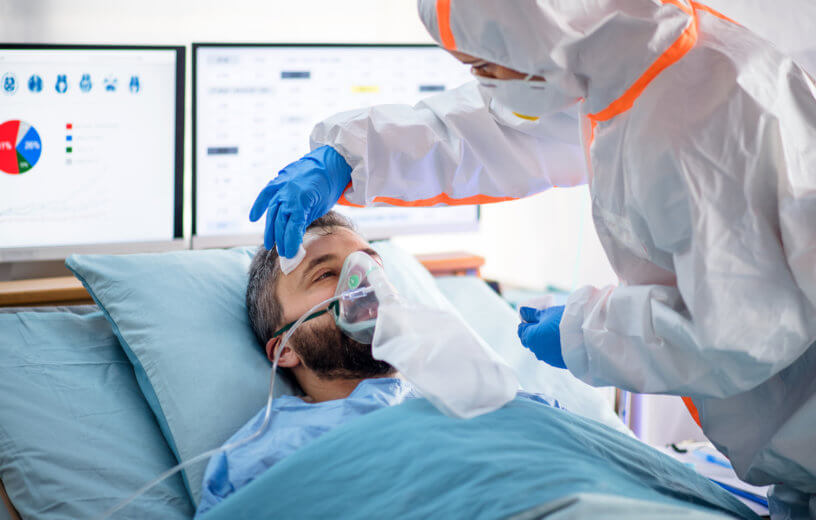ST. LOUIS, Mo. — Does a diminishing sex drive put men at greater risk of dying from the coronavirus? A new study finds males with low testosterone levels are at higher risk of experiencing severe symptoms of COVID-19.
Previous studies have suggested that men in some age groups face twice the risk of dying from COVID than women. Some of those reports point to the presence of testosterone playing a pivotal role in these deaths. However, the new findings reveal low testosterone levels in a man’s blood actually lead to more severe complications.
Researchers in St. Louis now want to determine whether survivors of COVID-19 living with long-term side-effects (the so-called “long haulers”) may benefit from testosterone therapy that may help them recover quicker.
Less testosterone can lead to death during the pandemic
In the study, study authors measured 90 male and 62 female COVID patients at Barnes-Jewish Hospital in Missouri. Among women, the researchers discovered no correlation between levels of any hormone and disease severity.
Conversely, men with severe cases of COVID-19 had average testosterone levels that were three times less than men with less severe symptoms. Results show these patients had around 53 nanograms of testosterone per deciliter in comparison to 151 in healthier men. By day three, researchers say the average testosterone level among the most severely ill men was just 19 nanograms per deciliter.
The team adds those with the lowest levels of testosterone were at the highest risk of going on a ventilator, needing intensive care, or dying. Overall, 37 patients, including 25 men, died over the course of the study. Advanced age, obesity, and diabetes, which are all factors that can increase the severity of COVID-19, also have a link to low testosterone levels.
“The groups of men who were getting sicker were known to have lower testosterone across the board,” says Dr. Sandeep Dhindsa, an endocrinologist at Saint Louis University, in a release.
“We also found that those men with COVID-19 who were not severely ill initially, but had low testosterone levels, were likely to need intensive care or intubation over the next two or three days. Lower testosterone levels seemed to predict which patients were likely to become very ill over the next few days.”
Sex hormones may make the heart more resilient to COVID
“During the pandemic, there has been a prevailing notion that testosterone is bad,” adds senior author Dr. Abhinav Diwan. “But we found the opposite in men. If a man had low testosterone when he first came to the hospital, his risk of having severe COVID-19 — meaning his risk of requiring intensive care or dying — was much higher compared with men who had more circulating testosterone. And if testosterone levels dropped further during hospitalization, the risk increased.”
“We are now investigating whether there is an association between sex hormones and cardiovascular outcomes in long COVID-19, when the symptoms linger over many months,” Diwan, a cardiologist and professor of medicine continues. “We also are interested in whether men recovering from COVID-19, including those with long COVID-19, may benefit from testosterone therapy. This therapy has been used in men with low levels of sex hormones, so it may be worth investigating whether a similar approach can help male COVID-19 survivors with their rehabilitation.”
Some scientists assume that men are more likely to suffer from COVID-19 due to them engaging in riskier behaviors, such as downplaying the seriousness of the virus, ignoring social distancing recommendations, and not washing their hands or wearing masks regularly.
However, studies find the rates of infection are actually similar between men and women. Males, however, remain more at risk of serious COVID-19 disease, suggesting biological differences in the body’s response to the infection.
The findings appear in JAMA Network Open.
SWNS writer Joe Morgan contributed to this report.
